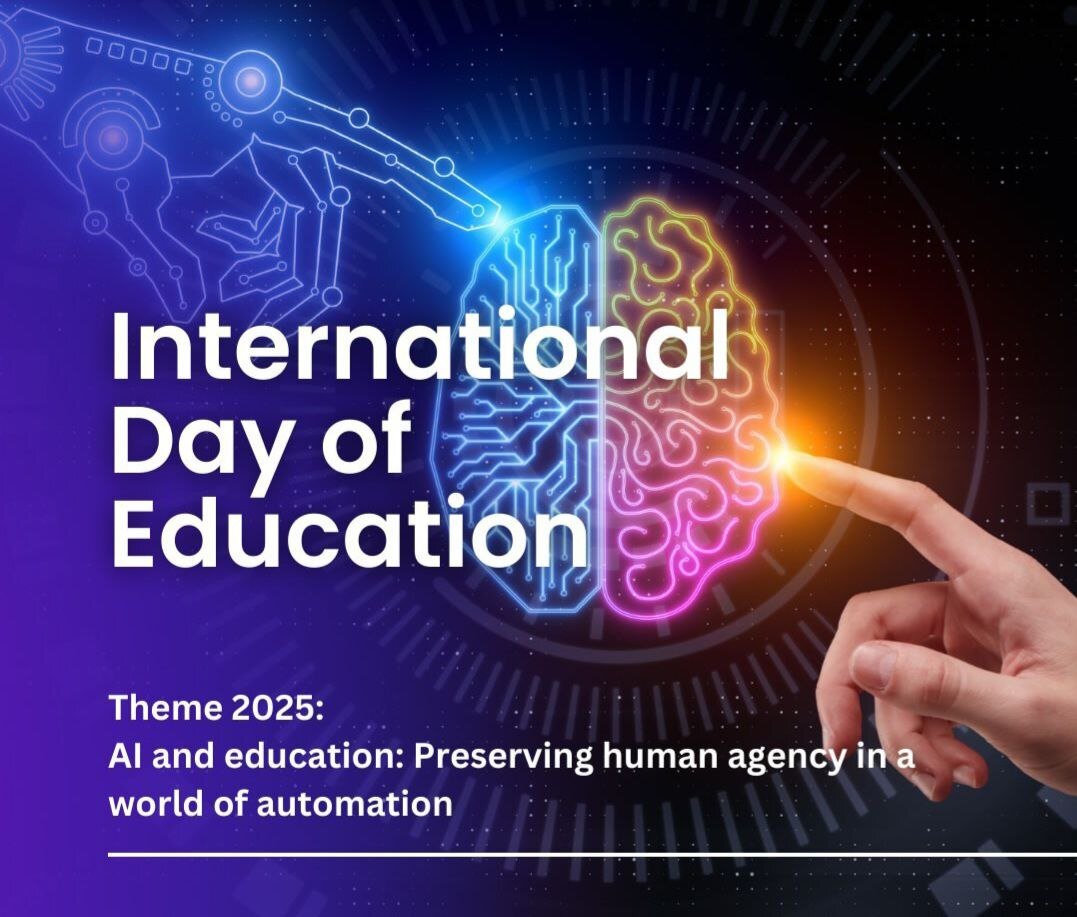AI, education, preserving human agency in a world of automation

TEHRAN – The International Day of Education is observed annually on January 24; this year the day is celebrated under the theme “Artificial Intelligence (AI) and education: Preserving human agency in a world of automation”.
The theme inspires reflections on the power of education to equip individuals and communities to navigate, understand and influence technological advancement.
As computer and AI-driven systems become more sophisticated, the boundaries between human intention and machine-driven action often blur, raising critical questions about how to preserve, redefine, and, ideally, elevate human agency in an age of technological acceleration.
On the International Day of Education 2025, United Nations Educational, Scientific and Cultural Organization (UNESCO) highlights the role of AI in reshaping education and learning. The event will spotlight the dynamic interplay between AI and education—how AI technologies are revolutionizing teaching and learning practices, while education, in turn, serves as a guiding force to ensure that AI is ethical, inclusive, and aligned with human values.
According to Audrey Azoulay, UNESCO Director-General, “AI offers major opportunities for education, provided that its deployment in schools is guided by clear ethical principles. To reach its full potential, this technology must complement the human and social dimensions of learning, rather than replace them. It must become a tool at the service of teachers and pupils, with the main objective being their autonomy and well-being.”
The official calls on UNESCO’s Member States to invest in training both teachers and students on the responsible use of this technology within the field of education.
In Iran, the role of artificial intelligence (AI) in education and learning was examined during a national conference held in Tehran on October 9.
The use of AI-driven technologies in education and learning as a transformative element has not only helped to promote the quality and efficiency of the educational process but has also provided different individuals with cutting-edge technologies and smart solutions, ISNA reported.
By precisely analyzing educational data and providing instant feedbacks, it has improved students’ assessment and educational content production.
It also focused on three major axes: recognizing challenges and capabilities; establishing a dynamic and collaborative environment, as well as discovering assessment and evaluation methods based on emerging technologies.
It focused on topics like AI and medical education, Cognitive Sciences, schools, design and content production, human resources development, educational assessment and evaluation, AI in the future of education and ethical considerations, as well as artificial intelligence and schools.
The main objective of the conference was to raise awareness of modern technologies and their applications in education and learning systems.
Lack of AI guidelines in education
AI is increasingly present in education. In high-income countries, more than 2/3 of secondary school pupils are already using generative AI tools to produce schoolwork.
Teachers are increasingly using AI to prepare their lessons and assess students’ work. School guidance and admissions, traditionally guided by teachers and experts, are also increasingly determined by AI.
However, education professionals still lack clear guidelines on these practices. Only 10 percent of schools and universities currently have an official framework for the use of AI, according to a survey of 450 institutions conducted by UNESCO in May 2023.
By 2022, only 7 countries had developed AI frameworks or programmes for their teachers, and only 15 included objectives on AI training in their national curricula. At the same time, more and more countries are placing restrictions on the use of new technologies in the classroom.
According to new data from UNESCO, almost 40 percent of countries now have a law or policy banning the use of mobile phones in schools – up from 24 percent in July 2023.
Leave a Comment